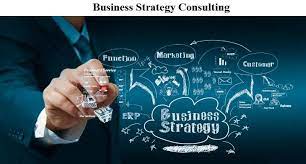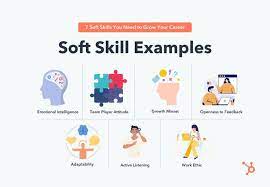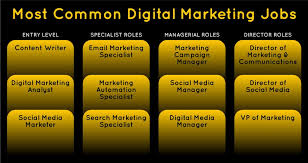Unlocking Success: Leveraging Expert Business Strategy Services for Your Company
The Importance of Business Strategy Services
Business strategy services play a crucial role in helping companies navigate the complexities of the modern business landscape. In today’s competitive environment, having a well-defined and effective business strategy is essential for long-term success.
Business strategy services encompass a range of activities aimed at defining, planning, and implementing strategies that align with the overall goals and objectives of a business. These services are designed to help companies identify opportunities, mitigate risks, and stay ahead of the competition.
One key aspect of business strategy services is strategic planning. This involves setting clear goals, defining a roadmap to achieve those goals, and outlining the actions needed to implement the strategy effectively. Strategic planning helps businesses focus their resources and efforts on activities that will drive growth and profitability.
Another important component of business strategy services is market analysis. By conducting thorough market research and analysis, businesses can gain valuable insights into consumer preferences, industry trends, competitor strategies, and potential opportunities for growth. This information is essential for developing strategies that are tailored to the specific needs of the market.
Business strategy services also include performance measurement and evaluation. By setting key performance indicators (KPIs) and regularly monitoring progress against these metrics, businesses can track their performance, identify areas for improvement, and make informed decisions to drive success.
Overall, business strategy services are instrumental in helping companies adapt to change, seize new opportunities, overcome challenges, and achieve sustainable growth. By partnering with experienced professionals who understand the intricacies of strategic planning and implementation, businesses can position themselves for long-term success in today’s dynamic business environment.
Answers to Common Questions About Business Strategy Services and Consultants
- What are the top 3 strategy consultants?
- What do business strategy consultants do?
- What is the difference between Accenture and Accenture strategy?
- What are business strategy services?
- What is business strategy BCG?
- What is a business strategy consultant?
- What are the 5 elements of business strategy?
- What is business service strategy?
What are the top 3 strategy consultants?
When seeking business strategy services, a frequently asked question is, “What are the top 3 strategy consultants?” Identifying the top strategy consultants can be subjective and depend on various factors such as industry expertise, track record of success, and client satisfaction. Some renowned strategy consulting firms that are often considered among the top include McKinsey & Company, Boston Consulting Group (BCG), and Bain & Company. These firms are known for their strategic thinking, innovative solutions, and ability to drive business transformation for a wide range of clients across different industries. Choosing the right strategy consultant involves evaluating their specific strengths and capabilities to ensure alignment with your business needs and objectives.
What do business strategy consultants do?
Business strategy consultants play a vital role in helping businesses navigate complex challenges and achieve their goals. These professionals bring expertise in analysing market trends, identifying growth opportunities, and developing strategic plans tailored to the unique needs of each business. Business strategy consultants work closely with companies to assess their current position, formulate actionable strategies for improvement, and provide guidance on implementation. By leveraging their industry knowledge and analytical skills, business strategy consultants help organisations make informed decisions, drive innovation, and stay competitive in today’s rapidly evolving business landscape.
What is the difference between Accenture and Accenture strategy?
When considering the difference between Accenture and Accenture Strategy, it is important to note that while Accenture is a global professional services company offering a wide range of services across various industries, Accenture Strategy specifically focuses on providing strategic consulting services to help businesses develop and implement effective strategies for growth and transformation. While Accenture offers a broad spectrum of services including technology, consulting, and outsourcing solutions, Accenture Strategy is dedicated to assisting clients in shaping their long-term strategic direction, improving operational efficiency, and driving innovation to achieve sustainable success in today’s competitive business landscape.
What are business strategy services?
Business strategy services encompass a range of professional activities and expertise aimed at assisting businesses in defining, planning, and implementing strategies to achieve their goals and objectives effectively. These services involve strategic planning, market analysis, performance measurement, and evaluation to help companies navigate the complexities of the modern business landscape. By leveraging business strategy services, organisations can gain valuable insights, identify opportunities for growth, mitigate risks, stay competitive, and drive long-term success in today’s dynamic and ever-evolving marketplace.
What is business strategy BCG?
Business strategy BCG, also known as the Boston Consulting Group matrix, is a strategic management tool used to analyse a company’s portfolio of businesses or products. Developed by the Boston Consulting Group in the 1970s, the BCG matrix categorises a company’s offerings into four quadrants: stars, cash cows, question marks, and dogs. Stars represent high-growth, high-market-share products or businesses that require heavy investment to sustain growth. Cash cows are established products or businesses with high market share but low growth potential, generating steady cash flow. Question marks are products or businesses with low market share in high-growth markets, requiring strategic decisions to either invest for growth or divest. Dogs are products or businesses with low market share and low growth potential that may need to be phased out. The BCG matrix helps companies make informed decisions about resource allocation and portfolio management based on the characteristics of each business unit.
What is a business strategy consultant?
A business strategy consultant is a professional who specialises in providing expert advice and guidance to businesses seeking to develop, refine, or implement effective strategies to achieve their goals. These consultants bring a wealth of knowledge and experience in areas such as market analysis, competitive positioning, strategic planning, and performance measurement. By working closely with businesses, a business strategy consultant helps identify opportunities for growth, mitigate risks, and enhance overall performance. Their role is crucial in guiding companies through complex decision-making processes and ensuring that their strategies are aligned with their long-term objectives.
What are the 5 elements of business strategy?
When considering the essential elements of business strategy, it is important to focus on five key components that form the foundation for a successful strategic plan. These elements typically include defining clear goals and objectives, conducting thorough market analysis to understand the business environment, identifying competitive advantage and differentiation strategies, outlining a detailed implementation plan with specific actions and timelines, and establishing performance metrics to track progress and measure success. By incorporating these five elements into their business strategy, companies can effectively align their resources and efforts towards achieving sustainable growth and competitive advantage in today’s dynamic marketplace.
What is business service strategy?
Business service strategy refers to the comprehensive plan and approach that businesses adopt to deliver services to their customers effectively and efficiently. It involves identifying the needs and expectations of customers, defining service offerings, determining the best delivery methods, and aligning service delivery with overall business objectives. A well-defined business service strategy helps companies differentiate themselves in the market, improve customer satisfaction, increase operational efficiency, and drive sustainable growth. By focusing on delivering value through services that meet customer demands and expectations, businesses can build strong relationships with their clients and gain a competitive edge in today’s competitive business landscape.









